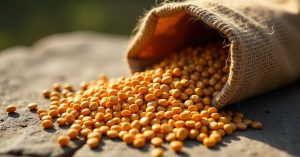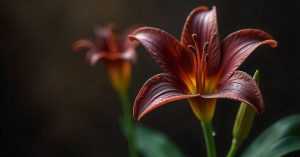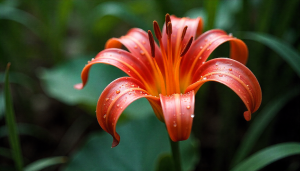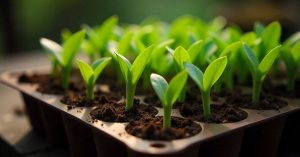Organic Bamboo Plant Fertilizer Tips
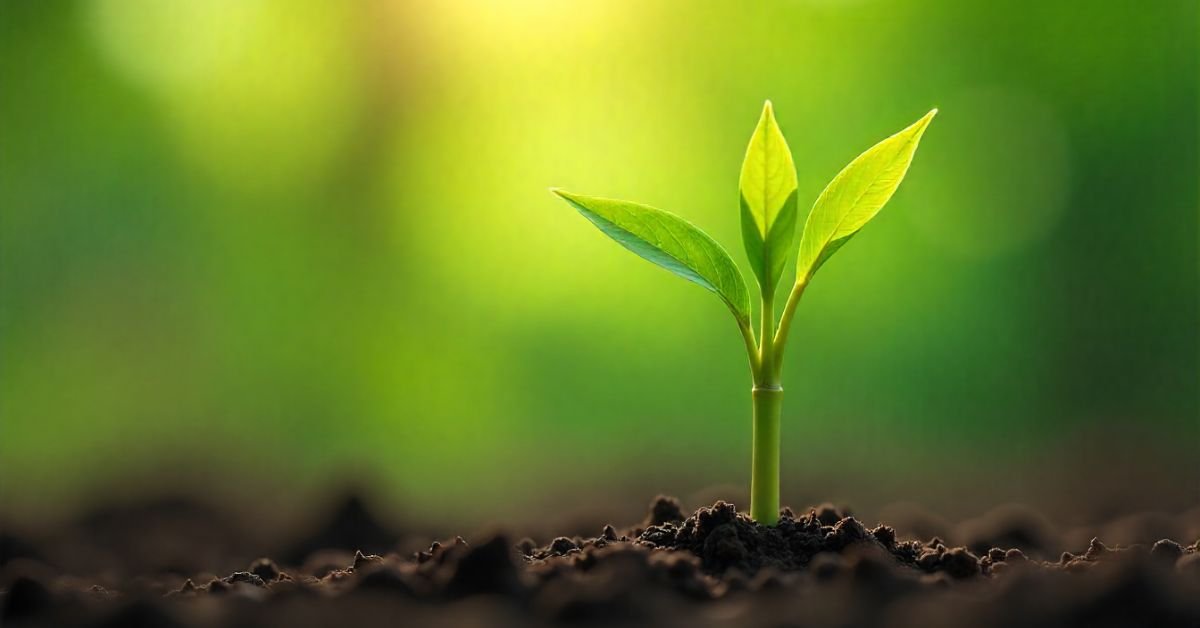
Introduction
Organic bamboo plant fertilizer is made from natural materials that help the plant grow healthy and strong. It improves the soil quality and provides nutrients like nitrogen, potassium, and phosphorus. Using organic fertilizer keeps the bamboo green, thick, and full of life without harmful chemicals.
Many gardeners love using organic fertilizers because they are safe for the environment. They make the bamboo grow faster and stronger. With the right fertilizer, your bamboo will have bright green leaves and steady growth all year. Caring for bamboo with natural products is both easy and rewarding.
To use organic fertilizer, apply it around the base of the bamboo plant once every few months. Compost, cow manure, or seaweed fertilizer work very well. Keep the soil moist after feeding to help nutrients reach the roots. With regular care, your bamboo will stay healthy and beautiful for a long time.
Understanding Bamboo’s Nutritional Needs
Bamboo needs many essential elements to grow well. The main ones are nitrogen (N), phosphorus (P), and potassium (K). These help build leaves, stems, and roots. Without enough nutrients, bamboo grows slowly or weakly.
Essential Nutrients for Bamboo Growth
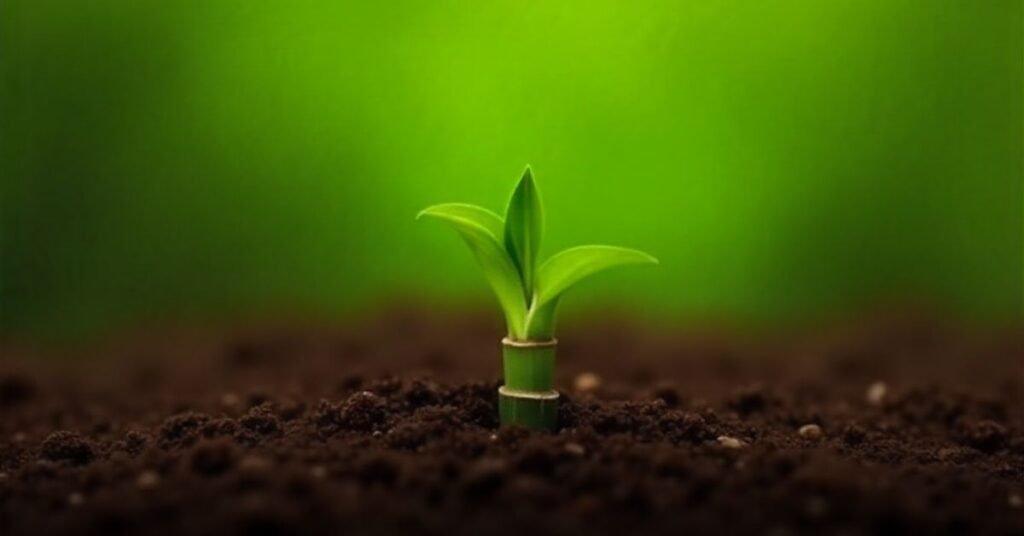
Nitrogen, phosphorus, and potassium are often called “macronutrients.” They are used in higher amounts than others. For bamboo, these three drive growth, energy, and strength. Balanced fertilizer blends usually mix these three in right proportions.
Why Nitrogen Matters Most
Nitrogen is crucial because it supports leaf and stem growth. Bamboo with better nitrogen shows more green leaves, taller culms, and more shoots. Studies show adding nitrogen increases shoot production and biomass.
Role of Phosphorus and Potassium
Phosphorus helps energy transfer inside cells and supports root development. It is key in early growth stages. Potassium regulates water balance and helps plants resist stress. Though bamboo has more nitrogen, potassium and phosphorus are still essential.
Best Fertilizer for Bamboo: Types and Recommendations
Choosing the right fertilizer is important for healthy and fast-growing bamboo. Bamboo plants need a fertilizer that is rich in nitrogen (N), along with phosphorus (P) and potassium (K). Nitrogen helps with leafy growth, while phosphorus and potassium strengthen the roots and stems.
Types of Bamboo Fertilizers
- Nitrogen-heavy NPK fertilizers are perfect for bamboo. They support quick growth and healthy leaves.
- Organic slow-release fertilizers work well too. They release nutrients slowly and keep the plant healthy for longer.
- Some special bamboo fertilizers contain silicon and potassium, which help the bamboo become stronger and more flexible.
- Even lawn fertilizers with high nitrogen levels are good options for bamboo.
Organic Fertilizer Options
If you prefer natural care, organic fertilizers are an excellent choice. They are eco-friendly and improve soil quality naturally. Options include compost, mature manure, guano, and bone meal.
Compost and Manure
- Compost makes the soil rich and full of nutrients.
- Manure from cows or horses adds nitrogen, phosphorus, and potassium.
- These help bamboo grow greener and stronger.
Natural Amendments
- Horsetail broth strengthens bamboo stems.
- Stone meal adds valuable minerals to the soil.
Homemade Organic Solutions
- Mix nettle or comfrey manure for more nitrogen.
- Add coffee grounds and bone meal for extra nutrients.
- Use crushed eggshells to balance soil pH.
Using organic fertilizer keeps your bamboo healthy and sustainable for the long term.
Fertilizer Types and Recommended Brands
| Fertilizer Type | Key Benefits | Recommended Brands |
| Balanced Fertilizers for Bamboo | Provide NPK nutrients for strong growth | Bamboo Special 13-3-13 NPK, Miracle-Gro Bamboo Food |
| Slow-Release Bamboo Fertilizers | Supply nutrients over a long period | Polyon 12-Month Release, Osmocote Plus |
| Liquid Bamboo Fertilizers | Fast absorption for quick results | Bamboo Nutrition Liquid, Myco Tea |
Timing and Application Methods
Regular fertilizing keeps bamboo strong all season. Start in mid-April and apply fertilizer every 4 weeks for 2 to 3 times.
- Start fertilizing: Mid-April
- Repeat: Every 4 weeks
- Last application: End of August
- After each feeding: Water the plant well
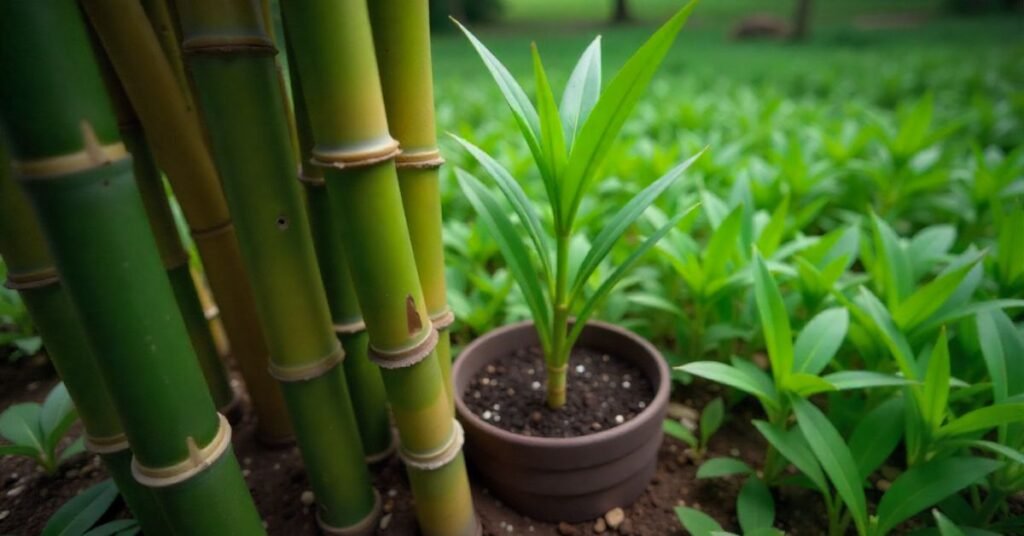
If using a slow-release fertilizer, one spring application is usually enough. Proper watering helps the nutrients reach the roots faster.
Container Bamboo Fertilization Guide
Potted bamboo plants need special attention. Their soil dries out faster and nutrients wash away easily.
Soil Mix for Containers
Use this mix for healthy bamboo:
- 75% Miracle-Gro® Moisture Control® Potting Mix
- 20% Black Kow Composted Manure
- 5% Biochar
Fertilizing Potted Bamboo
- Fertilize twice a year using 18-5-12 Time Release Fertilizer.
- Use 6 ounces per cubic foot of soil or 3 ounces on top.
- Keep the soil moist but not soggy. Water when the top inch feels dry.
- Repot or divide your bamboo every 5–10 years to refresh the soil.
Soil Preparation and Mulching Techniques
Healthy soil is key to strong bamboo. Bamboo grows best in well-draining, rich soil with a pH between 5.5 and 6.5.
Soil and Mulching Tips
- Mix compost or bamboo soil to add nutrients.
- Apply a 2–3 inch layer of mulch (like bamboo leaves or bark chips).
- Mulch keeps the soil moist and prevents weeds.
- Don’t remove fallen bamboo leaves; they contain silicon, which helps strengthen the plant.
- Add shade-loving groundcover plants for a natural and beautiful look.
Seasonal Fertilization Schedule
Different seasons need different care. Adjust fertilizer use based on weather and growth stages.
Spring and Summer Feeding
- Start in mid-April.
- Use a balanced, slow-release fertilizer every 4 weeks.
- Focus on nitrogen, phosphorus, and potassium for strong growth.
Fall and Winter Care
- In late summer, use fertilizer higher in phosphorus.
- This helps build strong roots and prepare for winter.
- In winter, reduce watering and stop fertilizing bamboo rests during this time.
Adjusting for Climate Zones
- In cold areas, protect bamboo with mulch or frost blankets.
- Begin fertilizing earlier in spring and continue longer in warm regions.
Seasonal Fertilizer Table
| Season | Fertilizer Type | Frequency | Main Nutrients |
| Spring & Summer | Balanced, slow-release | Every 4 weeks | Nitrogen, Phosphorus, Potassium |
| Late Summer | High phosphorus | Once | Phosphorus |
| Fall & Winter | Minimal or none | As needed | Maintenance only |
Conclusion
With the right fertilizer, schedule, and soil care, your bamboo will grow strong and healthy. A balanced routine of feeding, watering, and mulching keeps your bamboo lush and vibrant all year long. Whether you grow it in the ground or in pots, a little attention goes a long way in keeping your bamboo garden beautiful and green.
FAQs
1. What is the best fertilizer for bamboo plants?
A nitrogen-rich NPK fertilizer or organic compost works best to promote strong and fast growth.
2. How often should I fertilize my bamboo?
Fertilize every 4 weeks during spring and summer, and stop by the end of August.
3. Can I use lawn fertilizer for bamboo?
Yes, as long as it has a high nitrogen content and no weed killers.
4. What organic fertilizers are good for bamboo?
Compost, cow manure, bone meal, and coffee grounds are great natural options.
5. Should I fertilize bamboo in winter?
No, avoid fertilizing in winter since bamboo rests during the cold season.
